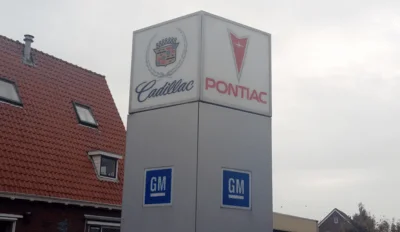Steve Cortes, President, League of American Workers | X
Steve Cortes, President, League of American Workers | X
Steve Cortes, founder of the League of American Workers, said that a new House bill could leave U.S. tax credits susceptible to exploitation by Chinese companies associated with the Chinese Communist Party (CCP).
"America should not be in the business of financing an enemy," said Cortes told Detroit City Wire. "Unless the Senate takes action to fix this legislation, the American taxpayer will be on the hook for funding our foremost adversary. Ford has yet to disclose the details of this arrangement, despite threats of Congressional subpoena. The Senate must mandate no U.S. tax credits to any PRC-affiliated companies."
According to Reuters, Ford Motor Company announced in February 2023 a $3.5 billion investment to construct an electric vehicle battery plant in Marshall, Michigan. The facility will utilize technology licensed from Chinese battery manufacturer CATL and is expected to begin production of lithium iron phosphate (LFP) batteries in 2026, creating approximately 2,500 jobs. Ford indicated that the plant would be operated by a wholly owned subsidiary, with CATL providing necessary technology and expertise.
A January 2024 Bloomberg report said that the U.S. government plans to ban the Department of Defense from procuring batteries from CATL and BYD starting in October 2027 due to national security concerns. The Pentagon cited increasing risks associated with sourcing sensitive technologies from firms potentially linked to China’s military-industrial complex. This procurement prohibition underscores a broader federal initiative to reduce reliance on Chinese technology within strategic sectors.
According to Ways and Means, U.S. House Republicans introduced legislation in early 2025 aimed at prohibiting federal tax credits for electric vehicle batteries sourced from companies affiliated with the People’s Republic of China, explicitly naming CATL. The bill, titled the Stop Money to Indoctrinate the Masses Overact (SMITMO), argues against subsidizing firms from rival geopolitical powers through U.S. tax incentives. It reflects growing legislative efforts to decouple U.S. industrial policy from Chinese supply chains in critical technologies.
Cortes is a political strategist and commentator who leads the League of American Workers, a populist economic advocacy group. With over 25 years of experience in financial markets as a trader and strategist on Wall Street, he transitioned into political commentary and has served as an on-air broadcaster for major news networks.






 Alerts Sign-up
Alerts Sign-up